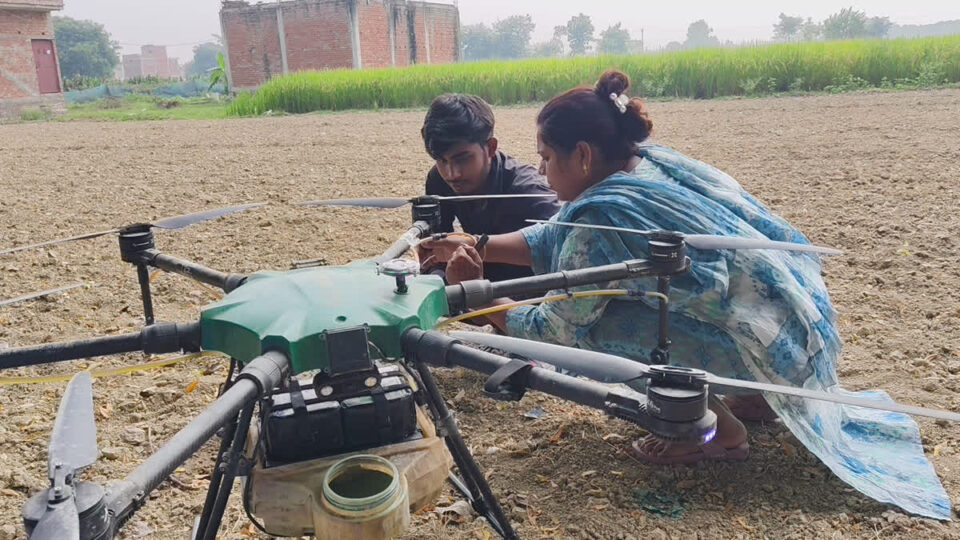Neetu Rai, a homemaker from Unch village in Varanasi, transformed her life when she decided to step beyond traditional roles and embrace technology. A B.Com graduate and mother of three, Neetu joined a self-help group to become financially independent. Her life took a remarkable turn when she enrolled in the Namo Drone Didi scheme, which trains rural women to use drones for agricultural purposes. Despite initial criticism from her community, Neetu’s determination saw her through a 16-day training program that equipped her with drone-handling skills and an electric auto worth Rs 15 lakh under the scheme.
Armed with her drone, Neetu began offering pesticide and fertilizer spraying services to farmers across villages. What started with small farms soon expanded as she mastered spraying an acre in just ten minutes. Farmers quickly realized the benefits — drones could access tough terrains and ensure even distribution of fertilizers, saving both time and labor. Charging Rs 300 per acre, Neetu earned around Rs 3 lakh in 13 months, proving that technology can empower women and improve agricultural productivity simultaneously. So far, nine women in Varanasi, including Neetu, have received remote pilot training certificates after completing a 10-day course at the Drone Academy of Professor Jayashankar Telangana State Agricultural University (PGTSAU). They also underwent three days of advanced training, enabling them to use drones efficiently for agricultural purposes.
Today, Neetu Rai stands as a symbol of empowerment and change in rural India. Supported by the Uttar Pradesh State Rural Livelihood Mission, drone-trained women like Neetu—fondly called “Drone Didis” or “Drone Sakhis”—have collectively earned approximately Rs 5.94 lakh in just 13 months by spraying fertilizers and pesticides across 3,212 acres. They have already sprayed over 1,600 litres of fertilizer and 487 litres of pesticide on a variety of crops including sugarcane, paddy, sesame, bottle gourd, pigeon pea, okra, and chili. Neetu’s journey from a homemaker to a tech-savvy entrepreneur stands as a shining example of how courage, training, and opportunity can empower rural women and transform the face of agriculture in India.

